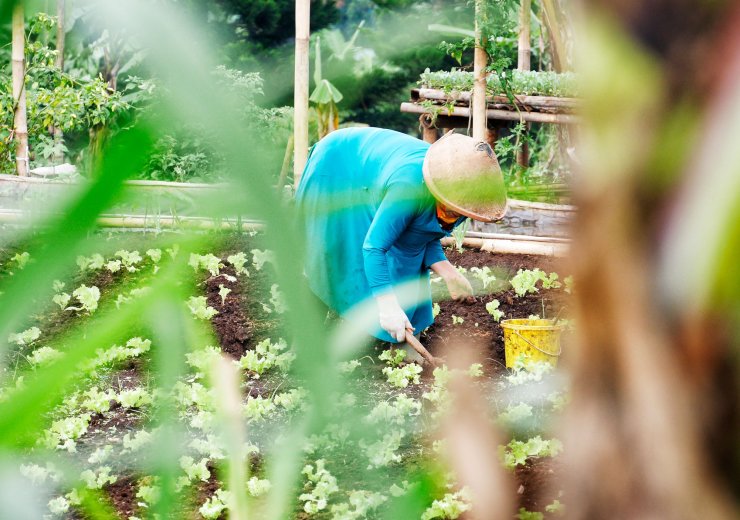
Corporate concentration of power is happening right across our food and farming systems. Farmers no longer own the technologies they need to produce food, or control access to the market. And the rest of us – everyone who buys and eats food – are left with very few meaningful choices about what ends up on our plate.
Who controls food and farming is a crucial question. With too much power concentrated in too few hands, our current industrial food system can never be fair or resilient, and the health and wellbeing of people, planet and animals are at risk.
There is a corporate concentration of power over what farmers grow and how they grow it, how food is processed, packaged and transported, how much it costs, and even over what ends up in our weekly shop.
The stranglehold on our food system is driven by the need for short-term profit. It means that food and farming researchers are paid to explore corporate not public interests. Farmers must use technologies that are owned by private business. They have to grow produce from seeds selected and owned by private companies (in 2018 61% of global seeds and pesticides production was owned by three mega-corporations). People’s everyday food choices are shaped by the overwhelming market power of supermarkets. Such concentration of power undermines the long-term sustainability of the world’s food supply.

One idea that challenges this entrenched power in food and farming systems is the shift away from defining people as consumers towards calling them food citizens. As consumers we focus on the cost of our weekly food shop. As citizens, we are invited to help shape our food system for the good of the community, making decisions that are good not just for us, but for wider society.
Some food businesses embrace the idea of food citizenship. New, disruptive companies invite their customers to help them steer the future of the business. Others have joined the resurgence of food co-operatives, which give power back to employees. Placing trust and value in the input of everyone who makes and eats food means the company itself is more trusted, delivering not just economic value, but social and environmental value too.
Such business models are beginning to shake the foundations of vested corporate power in the food system. This positive trend, alongside the urgent need to reframe the research agenda can help create sustainable and ethical food systems.

Tim Lang considers why history matters for UK food-related research

The voices of food producers are vital. At last, they are starting to being heard.